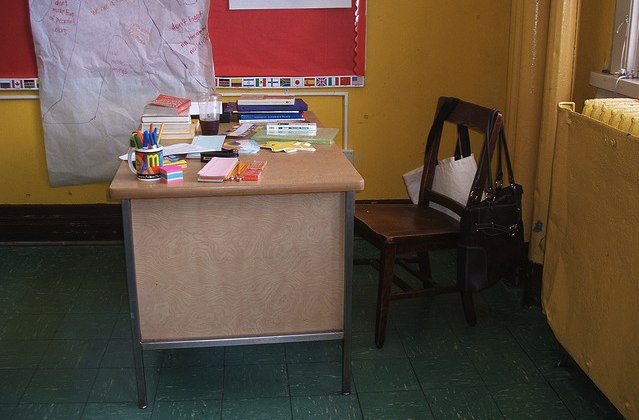The dust is starting to settle around the landmark Vergara trial, which upended California’s teacher tenure statutes. While teachers unions mull a potential appeal, others are looking to the potential upsides in the ruling, which promises to have far-reaching impacts beyond the Golden State.
Kevin Welner, director of the National Center for Education Policy, blogging over at Valerie Strauss’ The Answer Sheet, argues that sure, Judge Treu issued a sweeping decision by relying on a narrow strip of hotly contested evidence to rule that teacher tenure policies saddle primarily poor students and students of color with "grossly ineffective teachers." But by shifting his interpretations of earlier cases, Judge Treu lowered the standard plaintiffs must meet in order to prove that an educational policy infringes students’ fundamental rights to education. If an appellate court agrees with Treu, that could potentially help other legal fights for educational equity. It’s a provocative line of thought for people still reeling from this week’s ruling. But follow along.
Welner gives a key example: academic tracking.
There are likely hundreds of thousands of children in California who are enrolled in low-track classes, where the expectations, curricula and instruction are all watered down. These children are denied equal educational opportunities; the research regarding the harms of these low-track classes is much stronger and deeper than the research about teachers Judge Treu found persuasive in the Vergara case. That is, plaintiffs’ attorneys would easily be able to show a "real and appreciable impact" on students’ fundamental right to equality of education. Further, the harm from enrollment in low-track classes falls disproportionately on lower-income students and students of color.
This means that the burden would fall upon those who engage in tracking practices (e.g., school districts). They would have to show a compelling state interest in maintaining low-track classes, and they would have to show that their particular practices are necessary in order to further that compelling state interest. Since the plaintiffs will be able to point to highly successful schools that do not track, the defendants would not be able to meet that burden.
This type of analysis could be repeated for a wide array of other policies and practices, such as transportation, school choice, buildings, funding formulas, access to computer technology, enriched curriculum, testing and accountability policies, and segregated and stratified schools. If the relatively anemic facts and evidentiary record in Vergara support the striking down of five state statutes, it’s almost mind-boggling what the future may hold for education rights litigation in California (again, if the appellate courts use similar reasoning).
Read the rest of Welner’s piece, and Judge Treu’s ruling (PDF).
